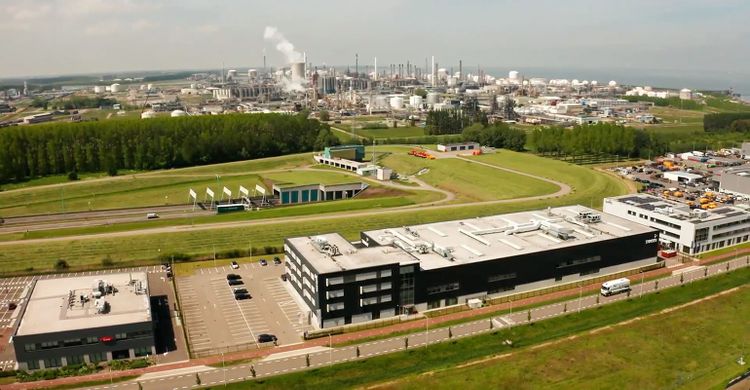Contaminated Plastic Waste Finds New Life via Dissolution Recycling

Recycled Plastic Waste: A Fresh Start
Trinseo provided the image for this blog post.
In April this year, Trinseo launched its pilot facility for dissolving recycling of polycarbonate in the Netherlands. In this blog post, Ben Porter from Trinseo describes the functioning of this technology and emphasizes its potential in advancing the recycling process of plastics.

Ben Porter | July 25th, 2023
Advances in recycling technology have progressed in order to tackle the global problem of plastic waste. Yet, a persistent challenge remains: there is a scarcity of top-notch recyclable materials available for processing. The issue of contamination has always been a worrisome factor, especially when dealing with materials coated, laminated, painted, printed, or colored. The chemical industry has been striving to find solutions for plastic waste, but historically, these heavily contaminated materials have ended up in landfills or been burned due to the limitations of traditional recycling methods.
With the imminent arrival of fresh regulations in Europe that specifically address the appropriate disposal of end-of-life items, companies need to start contemplating strategies for managing intricate substances. Dissolution emerges as a novel technology capable of surmounting these hurdles.
An Authentic Circular System
"Dissolution recycling" is a method of recycling where a specific type of plastic is separated using special solvents. These extracted plastics can then be used to create new recycled materials. The dissolution process is an advanced technique that allows both pre- and post-consumer materials containing the desired plastic to be directly placed into the solvent without needing much preparation. The solvent dissolves the desired plastic while leaving other waste materials solid, which can then be filtered out. The extracted plastic is 100% recycled and can be used to create new materials. The leftover materials can also go through other recycling processes. This makes the entire process circular, as the used solvent can be recovered and reused within the recycling system, saving costs. The physical recycling technology described here doesn't require extensive pre-treatment, like sorting, and has a high success rate. Dissolution recycling is seen as a reliable technology that will play a crucial role in the future of plastic circularity.
Polycarbonate (PC) is a material that shows a lot of potential for breaking down. PC is a versatile polymer used in various applications, including automotive parts made from PC or PC/ABS, flame-resistant or glass-filled PC, and PC/ABS in consumer electronics. These applications are currently disposed of in landfills or burned. However, now we can recycle them by breaking them down. The recycled polymers that result from this process are see-through and can be used in high-demand applications. For example, they can be used to create super-white color materials or high-purity feedstocks, giving product designers more options for their designs.
Recycling Tech: Dissolution Transformation
The utilization of dissolution technology for personal computers holds immense advantages for numerous businesses. It serves as a convenient and adaptable solution that requires no significant financial commitment. The resulting recycled substance possesses a high standard of quality and performance akin to freshly produced materials. Consequently, it can be effectively employed in a wide range of applications. Furthermore, the creation of goods using recycled PC materials significantly reduces their carbon footprint when compared to those made from conventional fossil fuel-based alternatives. This innovative recycling technology represents a game-changing breakthrough, offering a feasible and sustainable approach to managing end-of-life products commonly encountered in our daily lives.
This technology is not only applicable to computers: Businesses in the chemical sector are actively investigating this procedure with various materials such as polystyrene, food packaging made from polyethylene, polypropylene, and more. Furthermore, the European Union has shown support for this research by investing in the ABSolEU project. This project is financially supported by the Horizon Europe program and serves as a cooperative effort to explore the circularity of acrylonitrile butadiene styrene (ABS) through dissolution.
Dissolution complements other methods of recycling and allows businesses to optimize the utilization of plastic waste that would otherwise be thrown away. With companies and governments exploring ways to handle plastic waste and investing in circular technologies, dissolution presents itself as a potential answer.
Ben Porter is responsible for driving the progress of Trinseo's global sustainability initiatives as the Global Sustainability Business Development Manager. He plays a crucial role in facilitating the company's shift towards eco-friendly plastic alternatives in various industries. Porter also played a key role in the establishment of Trinseo's polycarbonate dissolution pilot facility at its Terneuzen location in the Netherlands, overseeing its operational success.











































